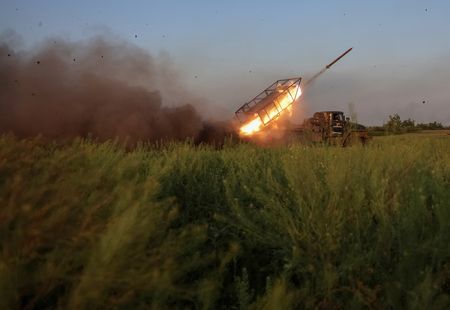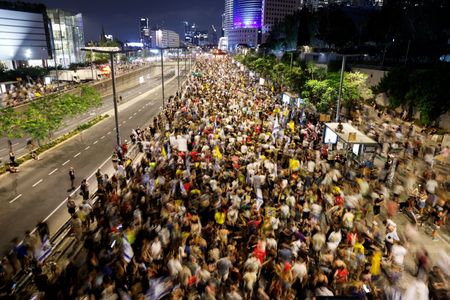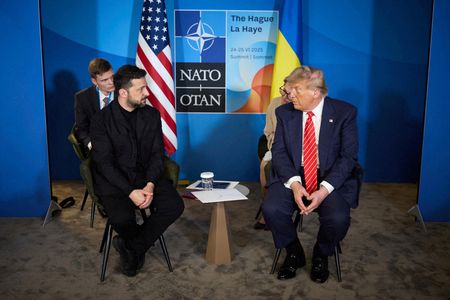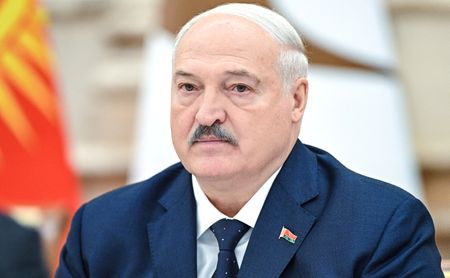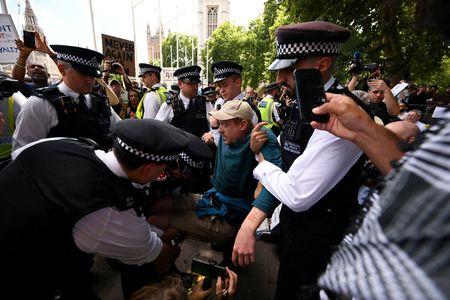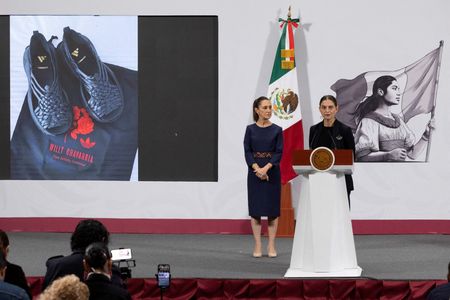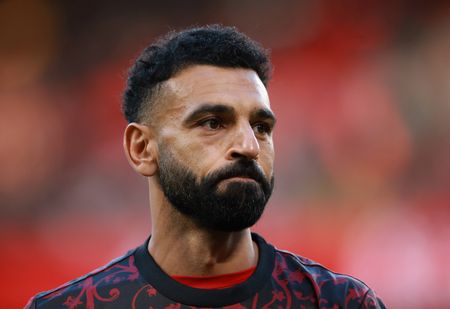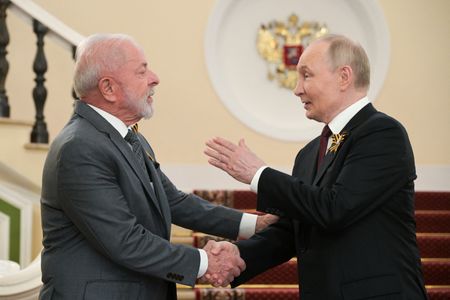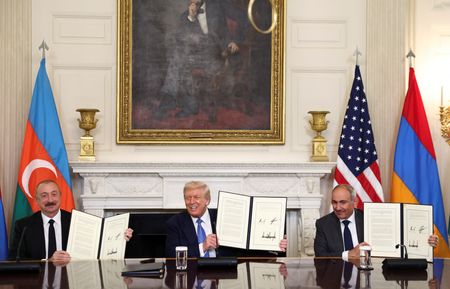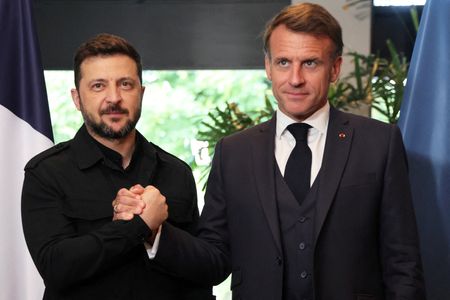By Olena Harmash and Suban Abdulla
KYIV/LONDON (Reuters) -European officials presented their own Ukraine peace proposals to the United States on Saturday as President Donald Trump prepared for talks with Russian President Vladimir Putin on ending the war.
Trump plans to meet Putin in Alaska on August 15, saying the parties, including Ukrainian President Volodymyr Zelenskiy, were close to a deal that could resolve the three-and-a-half-year conflict.
Details of the potential deal have yet to be announced, but Trump said it would involve “some swapping of territories to the betterment of both”. It could require Ukraine to surrender significant parts of its territory, an outcome Zelenskiy and his European allies say would only encourage Russian aggression.
U.S. Vice President JD Vance met Ukrainian and European allies on Saturday at Chevening House, a country mansion southeast of London, to discuss Trump’s push for peace.
A European official confirmed a counterproposal was put forward by European representatives at the meeting but declined to provide details.
The Wall Street Journal said European officials had presented a counterproposal that included demands that a ceasefire must take place before any other steps are taken and that any territory exchange must be reciprocal, with firm security guarantees.
“You can’t start a process by ceding territory in the middle of fighting,” it quoted one European negotiator as saying.
A U.S. official said “hours-long” meetings at Chevening produced significant progress toward bringing an end to the war in Ukraine. The White House did not immediately respond when asked if the Europeans had presented their counterproposals to the U.S.
British Prime Minister Keir Starmer and French President Emmanuel Macron spoke and pledged to find a “just and lasting peace” in Ukraine and “unwavering support” for Zelenskiy while welcoming Trump’s efforts to end the fighting, a Downing Street spokesperson said.
It was not clear what, if anything, had been agreed at Chevening, but Zelenskiy called the meeting constructive.
“All our arguments were heard,” he said in his evening address to Ukrainians. “The path to peace for Ukraine should be determined together and only together with Ukraine, this is key principle.”
He had earlier rejected any territorial concessions, saying “Ukrainians will not give their land to the occupier”.
The Trump administration is considering inviting Zelenskiy to join the U.S. and Russian presidents at their Alaska meeting, NBC News reported, citing an unnamed U.S. official. A Trump spokesperson did not immediately respond to a request for comment, and Russian and Ukrainian officials could not immediately be reached for comment.
Macron also said Ukraine must play a role in any negotiations.
“Ukraine’s future cannot be decided without the Ukrainians, who have been fighting for their freedom and security for over three years now,” he wrote on X after what he said were calls with Zelenskiy, German Chancellor Friedrich Merz and Starmer. “Europeans will also necessarily be part of the solution, as their own security is at stake.”
‘CLEAR STEPS NEEDED’
Zelenskiy has made a flurry of calls with Ukraine’s allies since Trump’s envoy Steve Witkoff’s visit to Moscow on Wednesday which Trump described as having achieved “great progress”.
Ukraine and the European Union have pushed back on proposals that they view as ceding too much to Putin, whose troops invaded Ukraine in February 2022, citing what Moscow called threats to Russia’s security from a Ukrainian pivot towards the West.
Kyiv and its Western allies say the invasion is an imperial-style land grab.
Moscow has previously claimed four Ukrainian regions – Luhansk, Donetsk, Zaporizhzhia and Kherson – as well as the Black Sea peninsula of Crimea, which was annexed in 2014.
Russian forces do not fully control all the territory in the four regions and Russia has demanded that Ukraine pull out its troops from the parts of all four of them that they still control.
Ukraine says its troops still have a small foothold in Russia’s Kursk region a year after its troops crossed the border to try to gain leverage in any negotiations. Russia said it had expelled Ukrainian troops from Kursk in April.
Tatiana Stanovaya, a senior fellow at the Carnegie Russia Eurasia Center, described the current peace push as “the first more or less realistic attempt to stop the war”.
“At the same time, I remain extremely sceptical about the implementation of the agreements, even if a truce is reached for a while. And there is virtually no doubt that the new commitments could be devastating for Ukraine,” she said.
Fierce fighting is raging along the more than 1,000-km (620-mile) front line along eastern and southern Ukraine, where Russian forces hold around a fifth of the country’s territory.
Russian troops are slowly advancing in Ukraine’s east, but their summer offensive has so far failed to achieve a major breakthrough, Ukrainian military analysts say.
Ukrainians remain defiant.
“Not a single serviceman will agree to cede territory, to pull out troops from Ukrainian territories,” Olesia Petritska, 51, told Reuters as she gestured to hundreds of small Ukrainian flags in the Kyiv central square commemorating fallen soldiers.
(Additional reporting by Maxim Rodionov in London, Lili Bayer in Brussels, Andrea Shalal, Jarett Renshaw and Nandita Bose in Washington and Dheeraj Kumar in Bengaluru; writing by Olena Harmash and David Brunnstrom; editing by Philippa Fletcher and Diane Craft)

